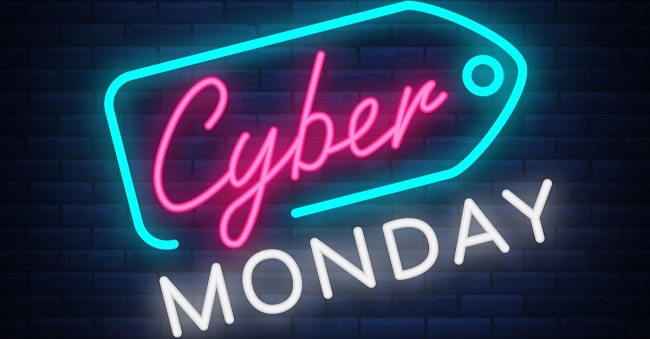Pushing Back Against Cyber Monday Chargebacks

Cyber Monday is traditionally the biggest shopping day online in the U.S. every year, an extension of the Thanksgiving holiday and Black Friday. Last year, Cyber Monday brought in $10.8 billion in online spending in the US according to analytics provided by Adobe. For the last several years Cyber Monday has been the biggest online shopping day of the four-day stretch starting with Thanksgiving. The record haul was boosted by the pandemic, as reduced in-store sales due to social distancing measures translated into a boon for eCommerce. Black Friday came in at $9 billion and Thanksgiving at $5.1 billion in 2020, according to Adobe’s figures.

Popular wisdom is that Black Friday period is when most retailers go from red to black, i.e. become profitable during the year thanks to all the traffic driven by holiday sales. All told, roughly 186 million shoppers bought holiday gifts, food or decorations from Thanksgiving to Cyber Monday last year, according to the National Retail Federation. However, the significance of the day, if not the name, was established by the early 20th century. Since the start of the millennium major retailers with operations outside of the U.S. have even tried to promote the concept of Black Friday in other countries to boost end of year sales.
Why Cyber Monday generates many chargebacks
Why is Cyber Monday in particular the biggest day for eCommerce in the U.S.? It probably has to do with the big rush of sales for the holiday season that begins post-Thanksgiving, combined with the reality that everyone is back at work, so they shop online instead of in person.
The sudden influx of card-not-present sales during the holiday sale period also means it is the peak time for payments fraud and friendly fraud. Payments fraud spikes as professional fraudsters use the background noise of large volumes of online transactions to hide their activity like a needle in a haystack. Friendly fraud jumps as regular customers feel buyer’s remorse over last-minute sales they felt pressure to buy or due to fulfilment issues caused by the high volume of orders that need to be processed and shipped in a timely fashion.
How to stop Cyber Monday chargebacks
Preventing chargebacks for true payments fraud requires a fraud fighting team and/or special software solutions. Ideally, the solution you use will incorporate machine learning, a form of artificial intelligence, so that the algorithms to detect fraud improve over time as the computers learn to better prevent fraud from past transaction data.

With the eCommerce companies Justt already serves, we see that friendly fraud chargebacks are typically categorized as service as opposed to fraud reason codes by a ratio of approximately 2:1. These chargebacks typically won’t be covered by the chargeback insurance offered by fraud solution providers.
If you’re worried about your chargeback rate crossing the credit card companies’ thresholds during the holiday months, implement an early warning service. With such a service you can preemptively issue refunds before transactions become chargebacks. It’s not a cheap solution, but it will cost you less money and resources than being placed in a chargeback monitoring program.
To complete your end-to-end solution, use Justt to fight your illegitimate chargebacks when they come in from your acquirer or payment processor. Justt turns a clunky, cumbersome and complex credit card dispute process into one that’s speedy, simple, fair, and hands-free for merchants. Using machine learning and deep domain-specific expertise, Justt effortlessly flags incorrect chargebacks, and builds tailored solutions to gather and submit evidence on merchants’ behalf. Better yet, we only charge a fee when we recover your money. That means we help make sure you turn red to black this Black Friday season.
Not too late to save Cyber Monday sales
When planning your chargeback defense for this holiday season, remember that a customer can file a payment dispute up to 120 calendar days after a transaction occurs and in some exceptional cases even longer. That means a sale made in November can be reversed four months later in March. Even though the holiday season is fast approaching you still have time to set up your chargeback defense to catch and reverse all those nasty friendly fraud chargebacks.
You earned it. Now keep it.
For more information, contact us at Justt






